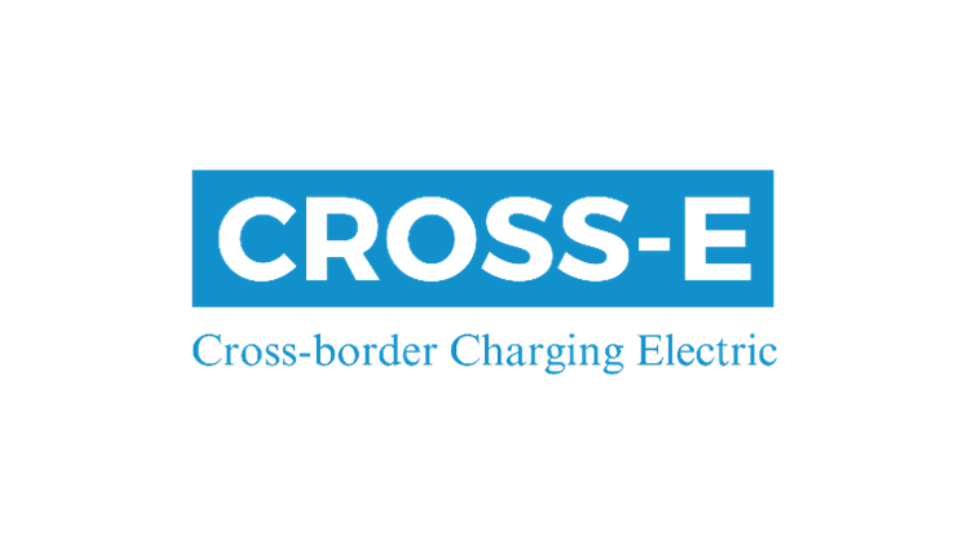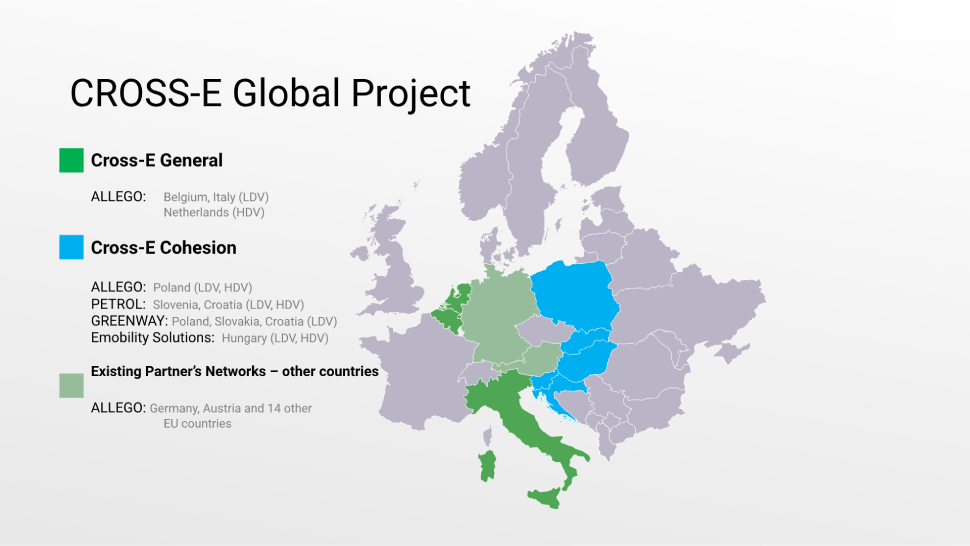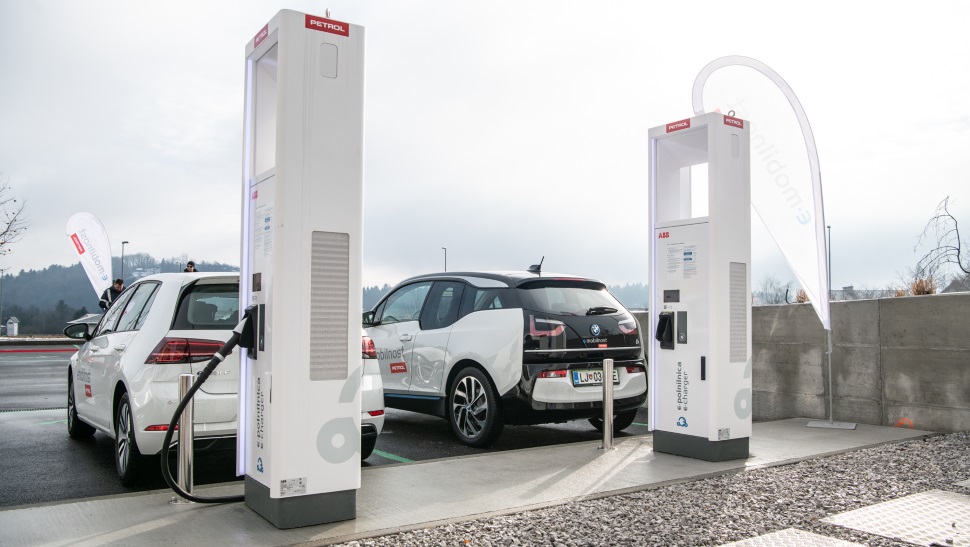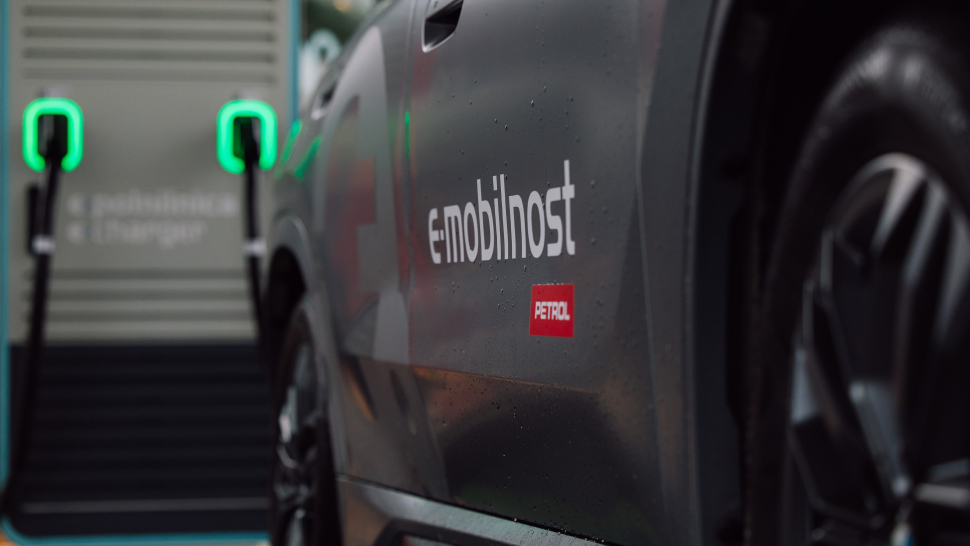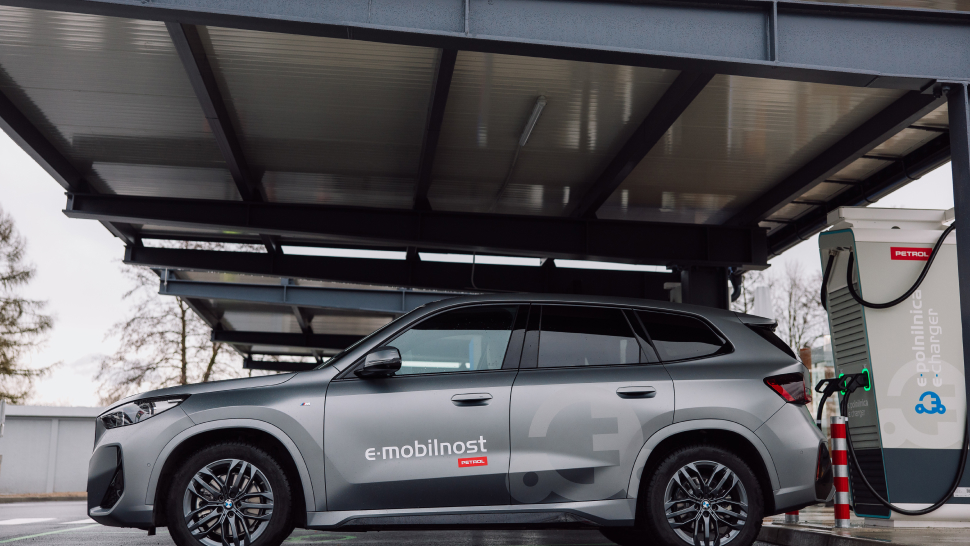CROSS-E
The European CROSS-E Cohesion project is aimed at deploying high-capacity charging points for both personal electric vehicles (LDVs) and electric trucks (HDVs) along key transit routes across Europe. The initiative supports the vision of a zero-emission future for electric mobility throughout the Continent.
Basic project information





Project description
Strategic Partnership for the Development of High-Performance networks
Deployment of 753 High-Performance Charging Points in Cohesion Countries
Contribution to European and National Targets for Transport Electrification
A key step towards achieving sustainability goals
Statements:
Richard Ferrer, European Commission, Head of the Alternative Fuels Sector at CINEA, the European Climate Infrastructure and Environment Executive Agency: “With this large-scale ambitious project, the European Union is supporting a significant new phase in the decarbonisation of mobility across Europe, particularly through the deployment of electric recharging infrastructure for heavy-duty vehicles, just as the first electric trucks are entering the market. Together with the four involved private frontrunners, we remain fully committed to achieving Green Deal objectives for the benefit of EU citizens and economic operators.”
Marko Ninčević, Member of the Management Board of Petrol, responsible for Mobility: “Our commitment to the energy transition drives us to seek innovative solutions that shape the future of mobility. We believe that sustainable mobility is essential to the green transition and improving the quality of life in our society. We recognise that this is only one of the many ways toward climate neutrality. Reaching these goals requires uniting efforts and collaborating with various stakeholders. We are proud to be a key partner in the European CROSS-E project, within which we will, among other things, install the first high-power charging stations for and trucks in Slovenia and Croatia. By expanding the Petrol´s charging network and enhancing our services, we improve the customer experience and further position the Petrol Group as the region’s most comprehensive provider of mobility solutions.”
Mathieu Bonnet, Chief Executive Officer of Allego: “The demand for charging is increasing as electric vehicles continue to gain market share across Europe. Charging infrastructure is pivotal in enabling a seamless transition to a fully electric fleet. By collaborating with Emobility Solutions, GreenWay, and Petro l ̶ who share our vision of a future defined by emission-free mobility ̶ we are well positioned to turn this shared vision into reality.”
Peter Badík, Chief Executive Officer of GreenWay: “We are very pleased to be a member of the CROSS-E consortium and continue to deploy high powered charging infrastructure and high-quality recharging services for Europe’s EV drivers across Poland, Slovakia and especially in our newest market, Croatia. This infrastructure and the accompanying services are particularly needed in Croatia. Under this project, GreenWay will deploy at least 16 ultra-fast charging hubs, equipped with at least 64 ultra-fast chargers, all fully integrated into the GrenWay public recharging network and designed to support smooth, reliable, and well supported travel for EV drivers.”
Janos Ungar, Chief Executive Officer of Emobility Solutions: “We believe that regional CEF projects, such as CROSS-E, are the foundation for a green, sustainable, and reliable zero emission road transportation. Emobility Solutions has a decade of experience in developing Europe’s electric mobility infrastructure, and it is an honour to represent Hungary in this collaboration. We know that much work remains to expand the number of high-power chargers along the highways while maximizing the utilization of the renewable energy. Through the CROSS-E project, our goal is to showcase best practices for developing high-power charging hubs in a smart way, with minimal dependence on the grid by utilizing local photovoltaic (PV) production and energy storage solutions.”

